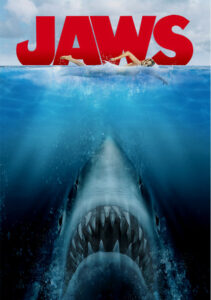From Russia with Love-1963
Director Terence Young
Starring Sean Connery, Daniela Bianchi
Top 250 Films #76
Scott’s Review #615
Reviewed February 5, 2017
Grade: A
From Russia with Love (1963) is only the second film in the storied James Bond franchise. It is a sequel to the debut installment, Dr. No, and received twice the budget.
This is evident in the film’s exquisite cinematography and look, with chase and battle scenes galore.
The film is lavish and grand, and what a Bond film ought to be, featuring adventures across countries, gorgeous location sequences, and a lovely romance between Bond (Sean Connery) and Bond girl Tatiana (Daniela Bianchi).
Still, she is not in my top Bond girls of all time.
Terence Young returned to direct the film with successful results.
Vowing revenge on James Bond for killing villainous Dr. No, SPECTRE’s Number 1 (seen only speaking and holding a cat) recruits evil Number 3, Rosa Klebb, a Russian director and defector, and Kronsteen, SPECTRE’s expert planner, to devise a plot to steal a Lektor cryptographic device from the Soviets and kill Bond in the process.
Klebb recruits expert killer Donald “Red” Grant and manipulates Tatiana into assisting. The story takes Bond mainly through Istanbul, Turkey, into a gypsy camp and via the Orient Express through Yugoslavia to the ultimate climax.
The villains in From Russia with Love are outstanding and a major draw to the film.
Klebb (Lotte Lenya) and Grant (Robert Shaw) are perfectly cast. Klebb, militant and severe with her short-cropped red hair, has a penchant for deadly footwear (she has a spike that shoots out from her boot containing venom that kills in seconds) and casually flaunts her lesbianism in front of Tatiana.
I admire this level of diversity in early Bond films—it was 1963, which was extremely rare.
Grant, on the other hand, is handsome and charismatic, with a chest of steel. With his good looks and bleached blonde hair, he is a perfect opponent for Bond, as the final battle between him and Bond aboard the Orient Express is a spectacular fight scene and a satisfactory conclusion to the film.
The action sequences are aplenty and compelling, especially the Orient Express train sequence finale, which is grand. As Bond and Tatiana, along with their ally Ali Kerim Bey, a British Intelligence chief from Istanbul, embark on a journey, they are stalked by Grant, who waits for an opportunity to pounce on his foes.
This sequence is the best part of the film for me- Grant, posing as a sophisticated British agent, has a cat-and-mouse conversation with Bond and Tatiana over a delicious dinner of Sole.
Grant drugs Tatiana by placing capsules in her white wine- the fact that he orders Chianti with Sole, a culinary faux pas, gives him away.
Other notable aspects of From Russia with Love are the soon-to-be familiar cohorts of Bond, who will be featured in Bond films for years to come: M, Q, and Miss Moneypenny become treasured supporting characters that audiences know and love.
Mere novices in this film, it is fun to see their scenes- especially lovelorn Moneypenny.
An odd scene of sparring female gypsies is both erotic and comical as the two women wrestle and fight over a gypsy chief, only to forget their rivalry and both bed Bond, falling madly in love with him as the two women suddenly become the best of friends.
The chemistry between Connery and Bianchi is good but nothing spectacular, and it is not the real highlight of this Bond entry. Don’t get me wrong—they make a gorgeous couple—his dark looks and her statuesque blonde figure look great, but I found the pairing just decent rather than spectacular.
The action sequences, especially the Orient Express scenes, are a spectacle, and the many location shots in and around Istanbul are ravishing.
From Russia with Love (1963) is a top entry in the Bond series and a film that got the ball rolling with fantastic Bond features- it is an expensively produced film, and this shows.

